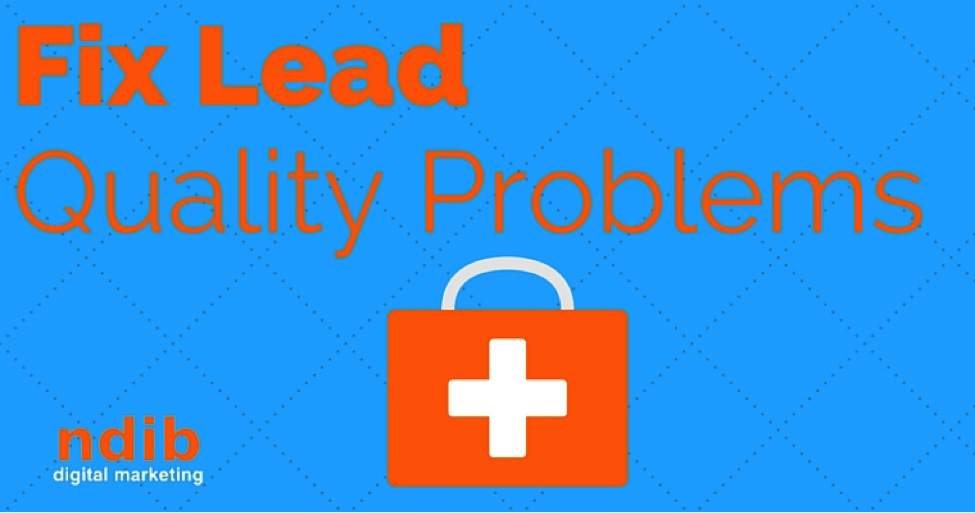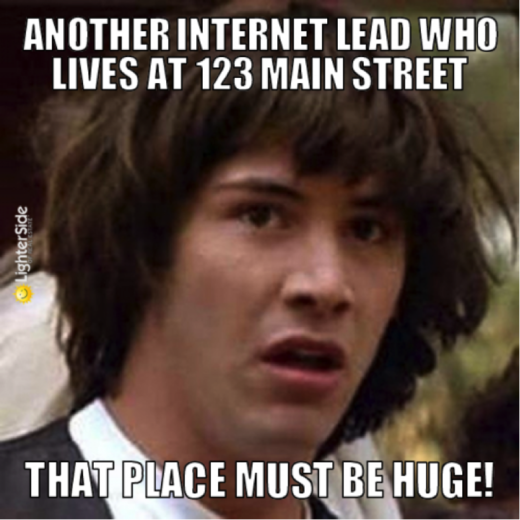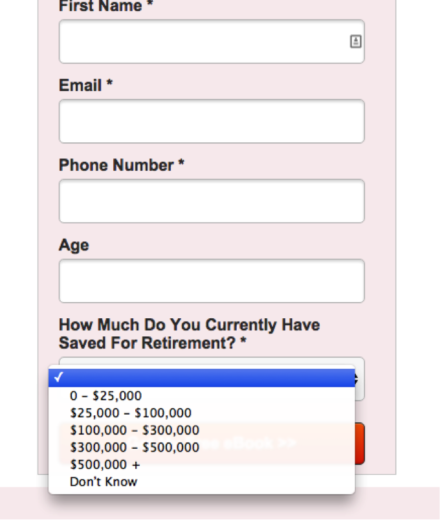
Remember the first time you received an email in your inbox that a user filled out the form on your landing page?
Suddenly, your PPC campaign was actually working. After all the prep work, the stress and hassle of setup you were actually getting leads from real live people. It was time to start making some sales!
Or was it?
With every follow up sales call the lead had an excuse why they wouldn’t or couldn’t buy. Excuses like your product or service was just too much money, or they weren’t ready for it right now.
This can be a frustrating challenge for Internet Advertisers. You get a sudden influx of leads from your PPC campaign, but the vast majority of these leads are unqualified.
Yet, you continue to pay and to receive these unqualified clicks, and you know the qualified leads are out there… probably doing business with your competitors.
You can get qualified leads too. You just need to make some simple adjustments to your strategy.
You Try to Get As Many Leads As Possible

This may come as a bit of a shock to those new to PPC, but in some cases you actually don’t want to get as many leads as possible. Some leads are just not worth receiving.
For every lead you get that is unqualified you spend the two things that businesses never have enough of – time and money. You waste the money on paying for that unqualified click and then waste time to follow up with an unqualified lead. If you are paying staff to follow up with the leads than you are wasting both your staff’s time and your businesses’ money!
Focus On The Quality Of Leads
Every business has a variable that makes a lead qualified or unqualified. It can be something dramatic like the lead needs to be a homeowner, or it can be something smaller like the type of operating system the lead has on their mobile device. You as the advertiser should know what makes a lead qualified before you ever launch your first campaign.
Once you know internally what qualifies a lead – you then have to focus on getting the leads with these specific traits. This is the seemingly difficult part because the information you need can be personal and could turn away potential customers.
I (like everyone else) have been guilty of worrying about losing a volume of conversions by asking probing questions on forms.
The solution I found is to change my (and my clients’) mindset and not focus on conversions/leads, but to focus on the return on ad spend. When you adopt this mindset you stop worrying about the marketing metric of getting a mass of conversions, and focus instead on the business metric of profit.
There are really two ways to focus on qualified leads – either they tell you or you tell them. I will show you below with real life examples of how we did this for clients and how it improved their return on ad spend.
Qualifying Leads – Either They Tell You Or You Tell Them
1) They Tell You

This is something we at Nerds Do It Better had to learn the hard way. We have a client that deals with annuities – and for those of you who don’t know you need a sizeable amount of money saved up to be able to purchase an annuity. When we initially began their campaign we had the standard form fields in the landing page of first name, phone and email. This was the strategy because I have always been a fan of asking for the minimal possible user information and then hitting the mass of potential leads with an email drip campaign and calling when appropriate.
We launched the campaign with just those fields and the leads began to flood in at a low cost per acquisition. When my client called in later that month I thought I was going to get a big congratulations and he would offer to buy me a Sam Adams. However, he told me that his staff was spending all day on the phone trying to track down these leads, and when they got the leads on the line they were completely unqualified. These are leads that would never be qualified because they would never have enough capital to buy an annuity. With the volume of leads they were receiving it would take him months to find the qualified ones and would cost him quite a bit to pay his staff for all the follow up phone calls.
He asked that I include additional form fields in the landing page to ask “Age” and “How Much Do You Have Saved Up for Retirement?” I informed him that this would crush his conversions. He said it was fine, as it would allow his business to just to focus on the qualified leads. Nervously I did as he asked.
I was right, it did crush his conversions – they went down quite a bit. However, on the next call he was extremely happy. Though his conversions had gone down dramatically, those that did convert had provided the key piece of information needed (how much they had saved up for retirement) and he could laser focus on getting in touch with them. His companies’ time was now spent building relationships with qualified individuals rather than calling hundreds of leads. Additionally, it seemed that those who had provided this information were more open to his follow up calls. The PPC account spent less money on unqualified clicks and his business spent more time building relationships with qualified customers who opened annuities.
2) You Tell Them
The other way to focus on quality leads is to tell the user whether they are a qualified lead or not.
This was another hard lesson for Nerds Do It Better! We run a PPC campaign for a CPA client who does tax preparation for expats. Generally, his client base is people who have complex tax situations in foreign countries and need a true expert in US and International tax law.

When we initially started his AdWords campaign, our ads focused on the fact that he is fast and thorough (two things former clients had told us were important). The leads came in rapidly. However, he then told us that with the rates he is charging this would not be profitable for either him or his clients! The amount that clients owed to the IRS was often less than he was even going to charge. We clearly needed to change strategy for his account.
In his particular situation, he couldn’t have the user fill out a form with qualifying questions about how much they were out of compliance. If he had, that information could be called to testify in court against these potential clients who were only looking for a free evaluation! We discussed it and realized that we had to tell the user rather than them telling us.
I sat down with our CPA client and came up with a number that a lead would have to be out of compliance for him to make a reasonable profit. We next included this number in the ad so the users would qualify themselves. By clicking our ads they were qualifying themselves – but also not really giving an answer that could result in him being called to testify.

We took that number and created ads that asked “Are You $225,000 Out of Compliance?” This lowered the overall amount of conversions, but the conversions he did receive were qualified and worth his time to offer the free consultation. The result was that we received less conversions and clicks, but the ones we did were more qualified and purchased his services.
How do you optimize for quality leads?
Image Credit
Main image designed by author on Canva
Keanu Reeves Lead from House Hunt



